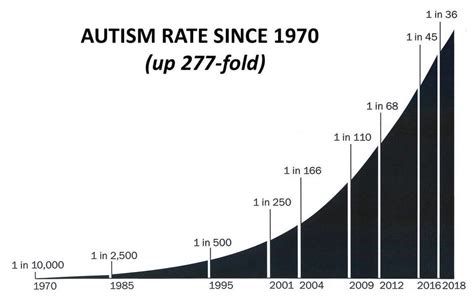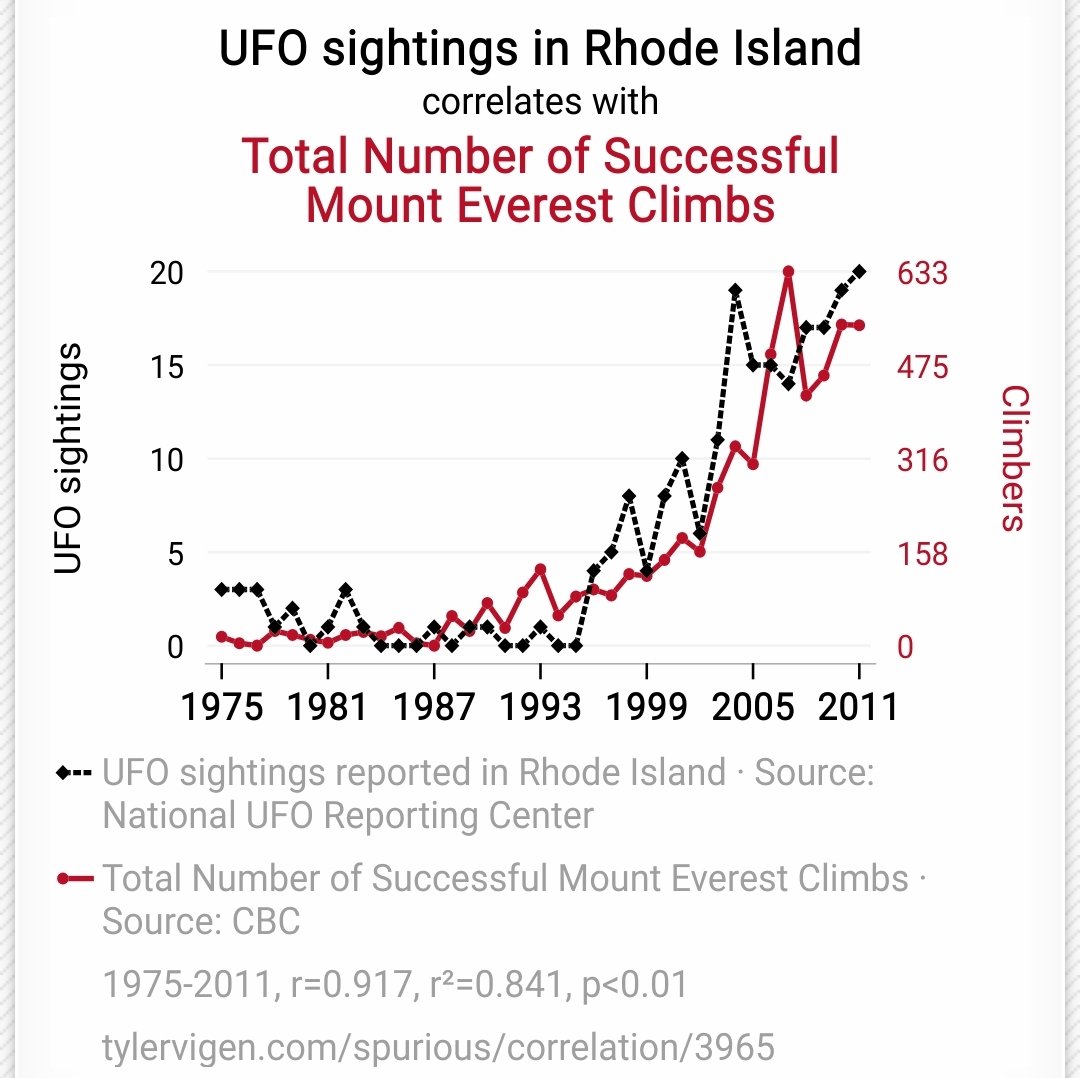“Autism spectrum disorder spiked 175% among people in the U.S. from 2.3 per 1,000 in 2011 to 6.3 per 1,000 in 2022, researchers found. Diagnosis rates climbed at a faster rate among adults in their mid-20s to mid-30s in that period, according to a study published Wednesday in JAMA Network Open.”
Four times as many children have been diagnosed with autism in the past two decades amid improved awareness and screening and evolving definitions. A new study suggests diagnoses have increased at a faster clip among younger adults over the past decade.
Diagnosis, not incidence.
I believed that too until seeing the dramatic increase in issues with school kids the last few years. It really is out of control in classrooms and i can’t imagine what will happen in 20 years when these kids parents begin to age and can’t care for them as adults at home.
If what you’re referring to is behavioral problems, the more obvious explanation to me is that as kids spend less and less time being physically active, they become more restless and feel under-stimulated when they have to sit in school all day.
Don’t forget the chronic defunding of public schools, leading to less individualized attention and overall lower quality of staff
And the pandemic. The effects of the pandemic did a massive number on so many younger kids behaviorally.
So yeah, there are numerous reasons for the upswing in social and behavioral issues in kids over the last several years.
And the lack of parents at home during the day to parent, and the fact that those parents are exhausted at night when they both finish working.
We’ve really created a perfect storm of horrible conditions to raise healthy and well adjusted children
Not just behavioral, though that’s a component of it, but nonverbal, very very delayed motor skills, feeding difficulties, etc.
Kids with diagnosed or undiagnosed Autism didn’t used to stay in the same class as “non-disruptive” students, oftentimes not even in the same school. But it’s so much better understood now that there is a much stronger effort to keep the classes as integrated as possible and just figure things out as they present. But the problem is that it’s being compounded by spending cuts that have led to integrating even more than what currently makes sense because they can’t afford enough teachers to split classes more. Instead, they hire cheaper teachers assistants and try to handle 30+ kids in the same room. A teacher and 2 TAs for 30 kids is a much worse situation than 2 teachers with 15 kids each.
When I was in school, even my, at the time called Asperger’s syndrome, was enough to have me pulled out into a side class with a specialised teacher. That side room was 10 kids and had 2 TA’s as well. They managed to keep that room so well organised that I was able to pull ahead a grade in that environment. Partially just due to not having to wait for all the other kids in the bigger class to learn stuff before I could move on. Each kid in the 10 kid side-class was on individual learning. So I could breeze through all the stuff I found easy to have more time to work on the stuff that was unduly challenging for me.
On the neurodivergent version of the IQ test they had me do back then, my section scores varied from as low as 74 in a section to 152 in my highest, averaged out to 121 overall. So there was more that I was good at than bad, but 74 is pretty low, so I had to spend a lot of time on that stuff. And it’s tough, the brain hates doing stuff that is relatively challenging. But they worked out a sort of interval training reward system that worked for me. I guarantee I am a much more useful person to society now than I would have been without the funding schools used to have. I shored up my weaknesses while still building my strengths.
After a year in the side course, I was able to rejoin the main class, but a grade higher than the class I used to be with before. The school got me a personal education assistant to keep me on task through challenging stuff or boring stuff. Anything that would otherwise cause my mind to wander or seek out other activities. Eventually, with practice, I was able to keep myself in check with the same tactics.
They managed to keep that room so well organised that I was able to pull ahead a grade in that environment. Partially just due to not having to wait for all the other kids in the bigger class to learn stuff before I could move on.
This is how school really fails many neurodivergent people, because it’s generally just not set up for a kid to move on if they already understand what is being taught and a lot of neurodivergent kids do not have the patience to put up with six weeks of “I already know this shit.” So they act out or they just zone out of it all or any of the many other ways that will end up with them not putting in the effort later when they need to.
Plenty of people are now old enough that they can go see a doctor themselves and get the diagnosis that their parents never bothered to or were unable to bring them to get when they were kids.
Considering the study is referencing young adults and pediatricians have been keeping an eye out for signs of this for quite a while now, I’m not so sure this is the case here with regard to this study at least. Someone like me who’s pushing 40 I would absolutely agree with you because nobody was monitoring this in the 80s and 90s but that hasn’t been the case for a while.
alot of us in that millenial range who were “spared” the diagnosis or just missed, are less likely to fight doctors on the topic as well. more doctors are better informed on newer information about autism. add to that, some of us paying attention to that information and expecting better lives for our kids then we or our undiagnosed parents got.
my mom spent the first 3 years after my sons diagnosis sending me lists of reasons i should give the doctors to say they were wrong. that finally stopped when she “offered parenting advice” on getting him to stop some visible stims. i stopped humoring her perspective and started silently making way too intesne eye contact inwas forced to learn, with no expression, until she got uncomfortable and left. for decades after “discovering” autistics existed, there were fewer autistics because we said there were fewer autistics.
My finger hurts from all the sign tapping

Autism DIAGNOSIS may be “spiking”.
This has the energy of “There weren’t gay/trans people when I was young”
Oh, there very DEFINITELY were gramma…
They were roommates
Life long bachelors
Has Josh settled down yet? He really loves those ladies, huh?
Autism or autism diagnoses?
Tik Tok says I have it
My condolences. There really is a ton of content there, so nobody can really blame you for using it.
deleted by creator
I’m of the opinion that in a few decades we’ll see autism and ADHD dropped from the DSM as we recognize that for the majority of people it isn’t a disorder, it’s just our brains working differently. The conflict only happens because what we call neurotypicals made the rules for society (both “written” and “unwritten”) and are best suited to follow those rules, so the rules never change.
Of course there are people on the non-functional end of the spectrum, and we may either come up with a new term for that, or just redraw the diagnostic line to be closer to the non-functional end.
Of course this assumes we as a species survive past the next couple decades, and that we continue to recognize and support neurodivergence, and start to uproot the neurotypical rules that only benefit neurotypicals.
A disorder is something that interferes with your enjoyment of life. While I’m proudly autistic and don’t have any issues saying that, I also recognize how it makes my life more difficult.
My sensory issues, stims, and social problems do interfere with my life and did even more when I was a child. I’ve been discriminated against for being autistic by a boss who tried to say that not making eye contact meant I was bad at my job. I’ve had to seek accommodations at work, which I wouldn’t be able to do if it wasn’t a disability
I appreciate your optimism but your perception is wrong. It very much is a disability and those of us living with it know that.
I am split on this. I feel like my autism isn’t a disability. Sometimes my autistic traits can be. Neurotypicals also have mental traits that can hold them back. Mine have names like executive function disorder, but neurotypicals can exhibit many of my traits (not all) and not be as stigmatized. So I’m of the opinion that autism itself isn’t a disability, but that doesn’t mean I don’t have disabilities that stem from it.
Eehh I kinda disagree. Autism is better to describe my sensory issues and my inability to correctly verbalize what I mean, as well as trouble with facial expressions.
The disorder part is there not only because it makes it harder to interact with people, but because of different information processing (natural or societal). Kinda like how epilepsy is also technically because of difference in information processing.
The conflict isn’t just because neurotypicals made the rules. It’s because they have an easier time forming a set of rules and following them collectively (hence the etymology of the word autism). Different cultures have different rules, and neurotypicals can adjust well. Some people may have subteler difficulties, but even then, it never becomes dehabiliting to a certain point, that point being what is the difference between someone with autism and someone without.
I really hope it isn’t until power representation of autistic people in the society makes it unnecessary.
Otherwise not having a diagnosis (even self-diagnosed, but just existent) makes many NT’s think you should behave like them and they can try to force you to behave like them and it’s normal to expect you to behave like them.
Also I dunno if you realize that autism also refers to people really unable to function on their own.
as a diagnosed clinical depresseee, when they told me I was on the spectrum, suddenly my life made sense and my therapy changed for the better…i’m 45…
Or, maybe better diagnosis resources are pointing at the fact there’s more autistic people
Perhaps we will discover it’s the neurotypicals that are actually divergent.
That would be awesome.
Next we should make extroverts and morning people feel like the freaks they are.
I’m autistic and a morning person. Let’s not introduce unnecessary criteria.
Isn’t this because the spectrum was expanded? Bunch of people I can think of growing up that were probably autistic but at just called them “eccentric” or “a bit odd” but were overall functional and could live a normal life. Those people today would be considered autistic whereas before they weren’t. Like a level 1 could go unnoticed by just about everyone.
Anyways I also find a lot of young adults are proud (?) to be autistic and act like it’s a superpower. As the father to an autistic child, it really isn’t. But I’m glad you guys have self esteem
Wasting all your effort on appearing still not “normal” instead of living some kind of sincere life is just very stupid.
You sound very young. Acceptance and feeling normal is extremely important to human beings and pretty much every creature on earth. Autism is a struggle, not a super power
I’m 28. Acceptance and feeling normal via imitation are not real and those who go this way will suffer.
And sincere acceptance is just that, it doesn’t force you to pretend.
You may also find out that people capable of that are not as rare as it seems. You won’t be lonely.
OK, I am, but that’s mainly due to having limited energy.
Look at what important word is missing from the headline, while being repeated multiple times in the first paragraph?
Four times as many children have been diagnosed with autism in the past two decades amid improved awareness and screening and evolving definitions. A new study suggests diagnoses have increased at a faster clip among younger adults over the past decade.
This study isn’t about autism “spiking”, this is about medical and social acceptance of the disorder as something that can be more openly discussed and acknowledged in ourselves and our family members.
OP, call this out more in your original post.
Another case of Left Handed liberation.
Edit: It seems my half-jest comment wasn’t well-received, haha. To clarify further, the percentage of left-handed individuals worldwide has remained relatively stable at around 12% for decades. However, it wasn’t always this way, and it wasn’t that long ago either, if you examine graphs showing the population of left-handed people over time. This isn’t because the frequency of left-handedness has increased; rather, it’s because our data collection and reporting on this aspect has improved significantly. As culturally left-handed individuals have stopped being persecuted for various archaic reasons, primarily religious ones, our understanding of left-handedness has also improved. Consequently, it’s not surprising that the number of individuals with autism (or any other condition) is “increasing” as we continue to refine and better understand the characteristics associated with autism. There’s lots more factors here, similar to the spike and subsequent decrease of lead-related afflictions as the world successfully moved away from leaded gasoline.
I’m unrelated news, public transportation simulator sales have spiked 175% since 2011.
I saw one of those at a public library in a small town in Connecticut! I hadn’t known they existed till then. Amazing stuff.
Deleted
Being certain about it might probably help you make sense of your past and present, also plan somewhat for the future.
I’m curious how much of this is from societal things and not just increased diagnoses.
In addition to people giving birth later, how much of that is “learned”. Like how many borderline people would have turned out “normal” from being forced to socialize, instead of being able to hide inside online all day.
That’s… not how autism works. It’s a neurodevelopmental disorder. Autistic nervous systems are literally wired differently than neurotypicals. “Turning out normal” as you call it is masking, which has been shown to be largely harmful for the mental health of autistic people.
Yeah, I know at least 4 of my ancestors should have been diagnosed as Autistic but never got tested. And 2 more were for sure undiagnosed ADHD. They all just ended up being stunted unhappy people instead that had a couple happy moments with their other stunted unhappy friends whenever they would hang out and play trains or music or whatever other “weirdly” deep hobby their sposes had to eventually pull them away from to go back to “normal” life.
It has its utility but I definitely agree it’s harmful in the long term. It would be nice to not have to mask to be accepted.
There are certain types of things that could be described as masking that people with neurodivergence really need to do anyway. A lot of people on the ASD spectrum have hygiene issues as kids because, for example, they find showering to give them a lot of anxiety. Obviously that needs to be overcome no matter how hard it is to do.
Autism is a spectrum, and an Autism diagnosis is drawing a line in the sand.
That sure sounds like “everyone’s a little autistic” which is absolutely not true.
That’s not how that works. ASD is one thing; behavior is another. However.
My son is on the spectrum, not diagnosed until his mid teens. He’s attended some college so far, and took advantage of a support program at the school for people with an ASD diagnosis. The first year, he was in a dorm specifically built for this program, so over the course of the year, he got a lot of new exposure to “people like him.”
Just today he was remarking (again) about how “sheltered” and “coddled” a lot of the other students in this program are. He sees how people respond to situations, and he sees how parents interact with their kids when visiting, moving in/out.
My son is glad to not have had a diagnosis until later on. He recognizes that having gotten some bullying in school - while definitely not desirable, did happen - forced him to be introspective, and forced him to figure out coping mechanisms on his own.
Those are beneficial skills that are well taught by experience, and overprotective parenting (whether the kid is on the spectrum or not) reduces the ability for kids to learn those skills.
He’s lucky, it sounds like he found out at the right time. I didn’t find out until much later and while my coping and masking skills work for a few hours, they’re exhausting to do, they make me feel like I’m lying about who I am, and I can never be relaxed around people.
And then there’s some of us who just didn’t figure this stuff out on our own at all and somehow “got by.” It has sure made a whole lot of my life pretty fucking miserable though. And finally got diagnosed when I was 45 years old. And now I can access abilities and skills that have been completely walled off for me before by a fog. In my case, it’s ADHD, although I highly suspect I am somewhat autistic as well.
forced him to be introspective, and forced him to figure out coping mechanisms on his own.
That’s what I’m trying to get at. How many people are borderline enough that if they had to figure things out on their own wouldn’t get diagnosed as an adult. Like I’m high functioning, but still too far in. But I’ve met a good number of people older than me that probably are autistic, but have learned to work with it.
How many people are borderline enough that if they had to figure things out on their own wouldn’t get diagnosed as an adult.
Again, that’s not how that works. ASD diagnosis is a lengthy process involving multiple days of interviewing. When someone goes undiagnosed until adulthood, but has figured out their own coping mechanisms and strategies, that doesn’t mean they aren’t on the spectrum anymore. As above, ASD and behavior are two different things.
… I’m high functioning, …
Have you been diagnosed? If you had, I’d have to think you would already know the above.
Have you been diagnosed? If you had, I’d have to think you would already know the above.
Yes, see below.
that doesn’t mean they aren’t on the spectrum anymore.
I’m not arguing that they’re not autistic, I don’t understand where you’re getting. Just that they’ve learned to “mask” and they think it’s normal, and they’ve gotten to the point that it’s not something they’re consciously doing. IE I had a speech impediment, I had a counselor work with me to fix it, I spent months consciously thinking about pronouncing it correct, and eventually it became the “normal” thing to do and required no thought. Eye contact has never been something I’m good at, but it no longer burns my soul to look into someones eyes. And if I need to be a good boy it takes almost 0 thought to maintain eye contact. It’s now the “normal” thing to do.
There’s bullying and there’s romantic trauma - a very normal thing for people with autism. There’s really nothing good in romantic trauma in an NT environment for an autistic person. Nothing good at all.
Also there’s some bullying and there’s a lot of bullying.
He might have simply been in a good school and called that bullying.
Anyway, there lived such a guy as M.I. Dragomirov, a Russian general, his approaches to warfare are a fossil, but his approaches to upbringing and healthy relationships in a military can be roughly summed up as “one who’s taught to fear a stick will fear enemy bayonet even more”. Being subject to bullying does not generally teach one bravery. I mean, there are probably very virtuous parents who’ll explain to their kid that always hitting back and even when the teachers and other kids are on the bully’s side. But a lot of parents will pretend there’s no bullying and tell their kid to ignore it, and that hitting back is wrong.
I would really like to not have been in that school, the skills I’ve learned there I feel I won’t ever need in any environment other than an actual warzone. But in that case an autistic person will function even worse than other people, skills or not.
Not genetic nor better diagnosis, but look at the use of glyphosate compared to the chart of the rise of autism. There is a known gut/brain link and glyposate disrupts it.



Autism doesn’t break the brain, it changes it.
In the most spectacular cases, these changes completely mess the brain up. In milder cases however, it’s far more of a mixed bag. It has a mix of pros and cons. I’m quite lucky and ended up with a lot of pros. I’m definitely not broken or sick. I do, however, think differently to most people.
Could glyphosate cause brain disruption, maybe (though unlikely). Does it cause autism, no.













